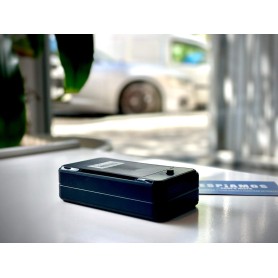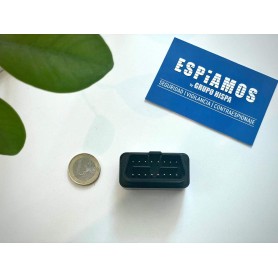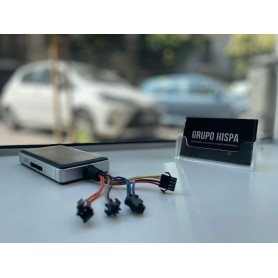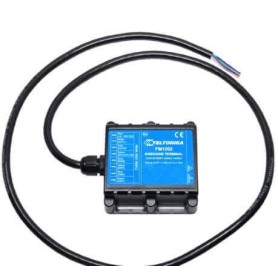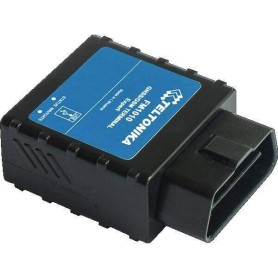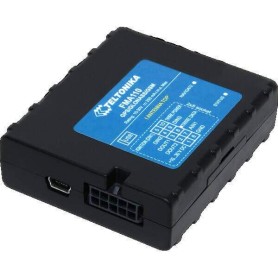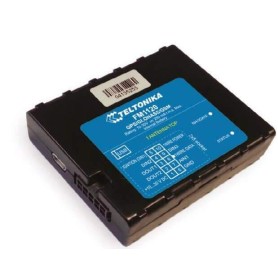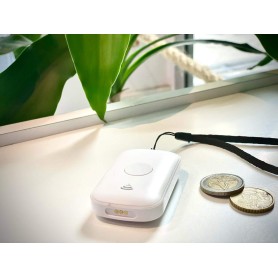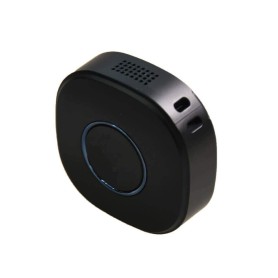
GPS Tracker by Connectivity: Find the Best Solution for Your Security
Connected GPS trackers allow real-time tracking of the location of people, vehicles, or objects with maximum precision. These devices are used in a variety of settings, from personal security to corporate fleet tracking, providing control and peace of mind in any situation.
Their operation is based on data transmission via various connectivity technologies. Depending on the model, they can use 4G, 3G, GSM, Wi-Fi, Bluetooth, or radio frequency networks to send the target's position to a tracking platform or mobile app. Thanks to these options, it's possible to select the most appropriate type of connectivity for each need.
There are a wide variety of GPS trackers on the market today, each with specific features tailored to different uses. Some models offer real-time position updates, while others are designed to record routes and transmit information at regular intervals. Additionally, some devices incorporate advanced features such as motion detection, sound activation, and tamper alerts.
Why use a GPS Locator for Connectivity?
GPS trackers with various connectivity options offer unparalleled advantages in terms of security, control, and efficiency . Thanks to their design and technology, these devices are ideal for a variety of situations:
- Vehicle protection: Allows you to track the location of a car, motorcycle, or truck in real time, making it easier to recover if it's stolen.
- People monitoring: Ideal for monitoring children, the elderly, or workers in risky environments.
- Merchandise monitoring: Ensures control of shipments and packages in the logistics sector, reducing the risk of loss.
- Surveillance in security environments: They are used in private investigations and operations where precise control of movements is crucial.
- Use in sports and outdoor activities: Very useful for hikers, mountaineers and adventurers who require a location system in hard-to-reach areas.
The choice of connectivity type will depend on the intended use. While a tracker with 4G connectivity offers greater coverage and data transmission speeds, a radio frequency model can be more discreet and resistant to interference.
Types of GPS Locators by Connectivity and Their Features
There are different types of GPS trackers depending on their connectivity system. Choosing the most suitable one will depend on the intended use and the environment in which it will operate.
- GPS trackers with 4G/3G/GSM: These are the most advanced in terms of connectivity, allowing real-time tracking with broad coverage. They connect to mobile networks and send their location directly to a server or app.
- GPS trackers with Wi-Fi: These work in urban environments where there is access to wireless networks. They are primarily used for indoor tracking or in areas with a stable connection.
- Bluetooth GPS trackers: Ideal for short distances, such as tracking luggage or pets. Their range is limited to a few meters.
- Radio-frequency GPS locators: These devices stand out for their high precision and ability to operate without mobile coverage, making them ideal for discreet surveillance and tracking operations.
Each type of locator has specific characteristics that can influence its performance and usefulness:
- Battery life: Some devices have long-lasting batteries, while others require constant power.
- Accuracy: Depending on the connectivity system, location accuracy can vary from a few meters to an exact location.
- Real-time alerts: Advanced models provide notifications in case of movement, geofencing, and tampering alerts.
- Resistance: There are devices designed to withstand extreme conditions, including water, dust and shock.
Where to Buy a GPS Tracker for Connectivity?
If you are looking for a reliable GPS locator with the best technology, at ESPIAMOS® You'll find a wide selection of devices adapted to any need. Our catalog includes models with different connectivity options, ensuring optimal performance in any environment.
- Expert advice: We help you choose the model that best suits your needs.
- 3-Year Warranty: All our products come with an extended warranty.
- Fast and Discreet Shipping: We protect your privacy with every purchase.
- Secure Payment: Various payment methods for greater convenience.
Buy your GPS tracker at ESPIAMOS® and enjoy maximum tracking and location security. Discover our selection of products and choose the one that best suits your needs.
Frequently Asked Questions about GPS Locators by Connectivity
What advantages does a GPS tracker with connectivity have over a passive one?
A GPS tracker with active connectivity allows real-time location monitoring from any device with internet access. Unlike passive models, which only store data for later review, these devices transmit information immediately. This offers constant monitoring, ideal for situations where immediacy is key, such as protecting people, vehicles, or valuable assets. In addition, many incorporate features such as alerts, geofencing, and automatic notifications that optimize security and response to any incident.
What type of connectivity is best suited for indoor use?
For locating in enclosed spaces or areas where GPS signal is weak, models with Wi-Fi or Bluetooth connectivity are most effective. These devices use local networks or pairing with nearby mobile phones to triangulate the position, improving accuracy indoors. There are also hybrid trackers that combine GPS, Wi-Fi, and GSM to dynamically adapt to the environment, ensuring tracking even when satellite signal is limited. This option is especially useful in warehouses, buildings, or industrial facilities.
Do connectivity locators work without mobile coverage?
It depends on the type of connectivity. Those that use mobile networks (GSM, 3G, 4G) require telephone coverage to transmit live data. However, devices that operate via radio frequency can operate without a mobile network, as they send the signal to a specialized nearby receiver. There are also trackers with a dual system, which store data internally if there is no signal and synchronize it when they regain connection. This feature ensures that information is not lost in remote areas or areas with limited coverage.
What is the battery life of GPS trackers with active connectivity?
Battery life varies greatly depending on the technology used, the update frequency, and the features enabled. A tracker with real-time tracking can last between 2 and 7 days with intensive use, while a model with standby mode or motion activation can last several weeks or even months. Some devices allow you to configure sending intervals to optimize power consumption. Additionally, there are versions with permanent power, ideal for vehicles or fixed installations that require continuous monitoring.
What level of accuracy do different connectivity systems offer?
Accuracy depends on the technology used. GPS trackers with 4G or GSM connectivity typically provide location accuracy within 2 to 5 meters outdoors. On the other hand, models that use only Bluetooth or Wi-Fi may be less accurate, although they are suitable for indoor spaces. Radio frequency devices excel at pinpoint accuracy over short distances, making them perfect for discreet operations. Choosing the right system ensures reliable tracking based on the environment and the target being protected.






 WhatsApp
WhatsApp Telegram
Telegram





